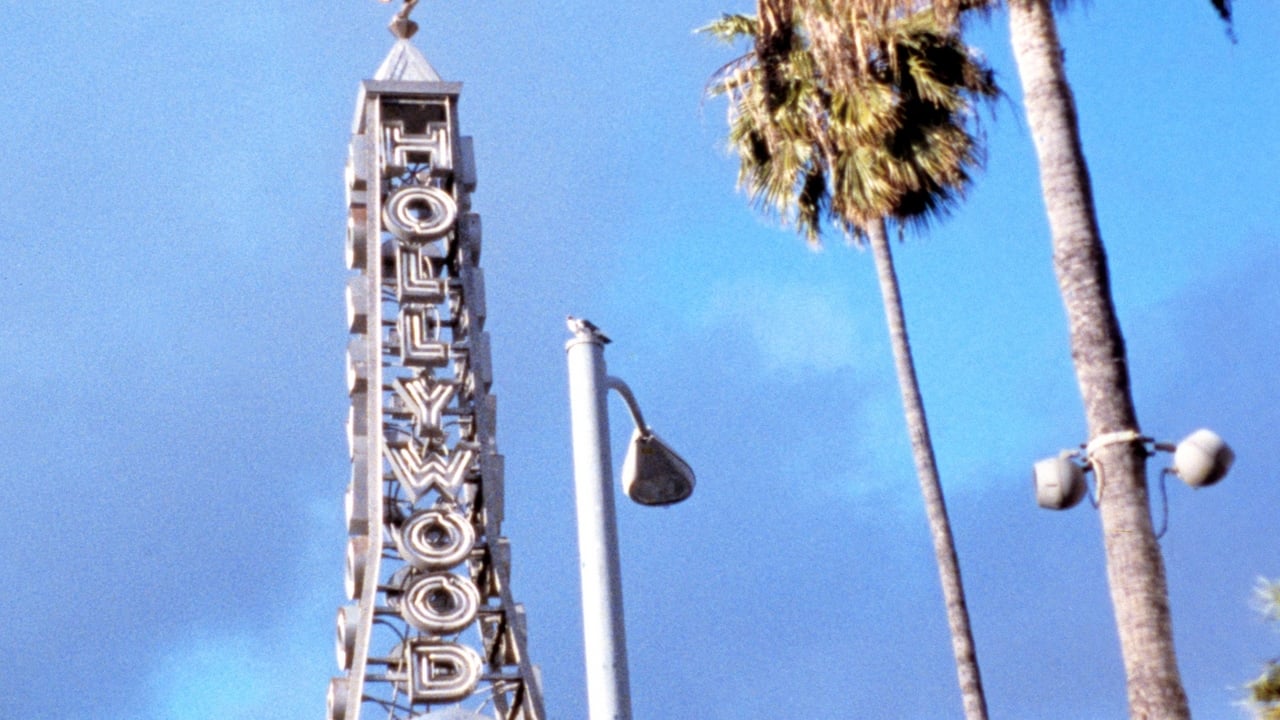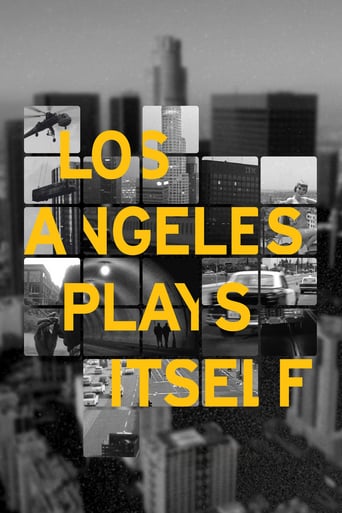CheerupSilver
Very Cool!!!
Gurlyndrobb
While it doesn't offer any answers, it both thrills and makes you think.
Married Baby
Just intense enough to provide a much-needed diversion, just lightweight enough to make you forget about it soon after it’s over. It’s not exactly “good,” per se, but it does what it sets out to do in terms of putting us on edge, which makes it … successful?
Marva
It is an exhilarating, distressing, funny and profound film, with one of the more memorable film scores in years,
Bob Taylor
I have never been to Los Angeles--let's get that out of the way first. I have been watching movies set in the city for most of my life. It was great to see excerpts from Kiss Me Deadly, Sunset Boulevard, Rebel Without a Cause, Double Indemnity and many other films both great and terrible shown here. If some films are missing from the compilation (I missed Boogie Nights and Shampoo) many are there and testify most eloquently to the power of the city.I've had Reyner Banham's book LOS ANGELES THE ARCHITECTURE OF FOUR ECOLOGIES for forty years and have been waiting for the documentarist who would give me the Bradbury building on film, who knows the importance of these buildings to architectural tradition. Richard Neutra and John Lautner must be pleased, if the film is playing in Heaven, to see their work so lovingly presented.
Dean Reeves
Interesting documentary and well worth the viewing. For movie fanatics it gives the audience a nice connection between the city of Los Angeles and many of the movies filmed in and around the city. The movie could have steered clear of the social commentary and just let the viewer see the comparisons and contrasting perspectives of life versus movies coming out of Hollywood. In the end it isn't any different from any political documentary. It simply gets too heavy and deep when it could be a more light hearted look at films and the connection to Los Angeles. It is a cynical and sadly dark look at the film industry and how it doesn't sync with the writer's view of his city.
djdima77
Terrible, with boring voice over that would be more appropriate for nature documentary or technical tutorial. This film is long, very long and unnecessary depressing in mood and tone. There are way better ways to learn about LA history, people and architecture. This movie is nothing more then a self obsessed and self involved research, that the author didn't even bother to make even remotely watchable. The movie plays like an internal monologue, where the author forgot to keep it intriguing or interesting. The movie selection is also very poorly done, there are way more and way better films to represent LA in it's best and worst ways. The narrative winders around, rolling in and out of the main subject, this meandering both irritating and confusing.Don't waste your time!
Eye-on-the-pie-in-the-sky
Trenchant and epic in size is Thom Andersen's "Los Angeles Plays Itself" – a doc that analyzes representation as much as it analyzes representation of Los Angeles itself.How I adored the narrator's (Encke King) voice! It was at once sardonic and annoyed – a reflection of Andersen's emotional regard toward the whole matter, no doubt. What we hear are critical observations of the film clips that we see – there are quite literally dozens and dozens of clips here. This may seem disorienting and exhausting (to the interest level) but it's not. So struck with the compelling argument that Andersen presents to us do the hours fly by like minutes (not vice versa as Addison DeWitt said in "All About Eve").Funny/interesting it is how this doc is set up like a conventional narrative film that Hollywood is guilty of routinely (and cloyingly) pushing on to the consumer - first we laugh and then we cry. The only difference here (and it's a big one) is that we're looking at actual subjects that existed or still exist. We cry for Los Angeles, you ask? Well, I'm not at liberty to discuss the poignancy that's present – it must be experienced firsthand in order to attain those surprise tears that are greatly missing in our movies.

